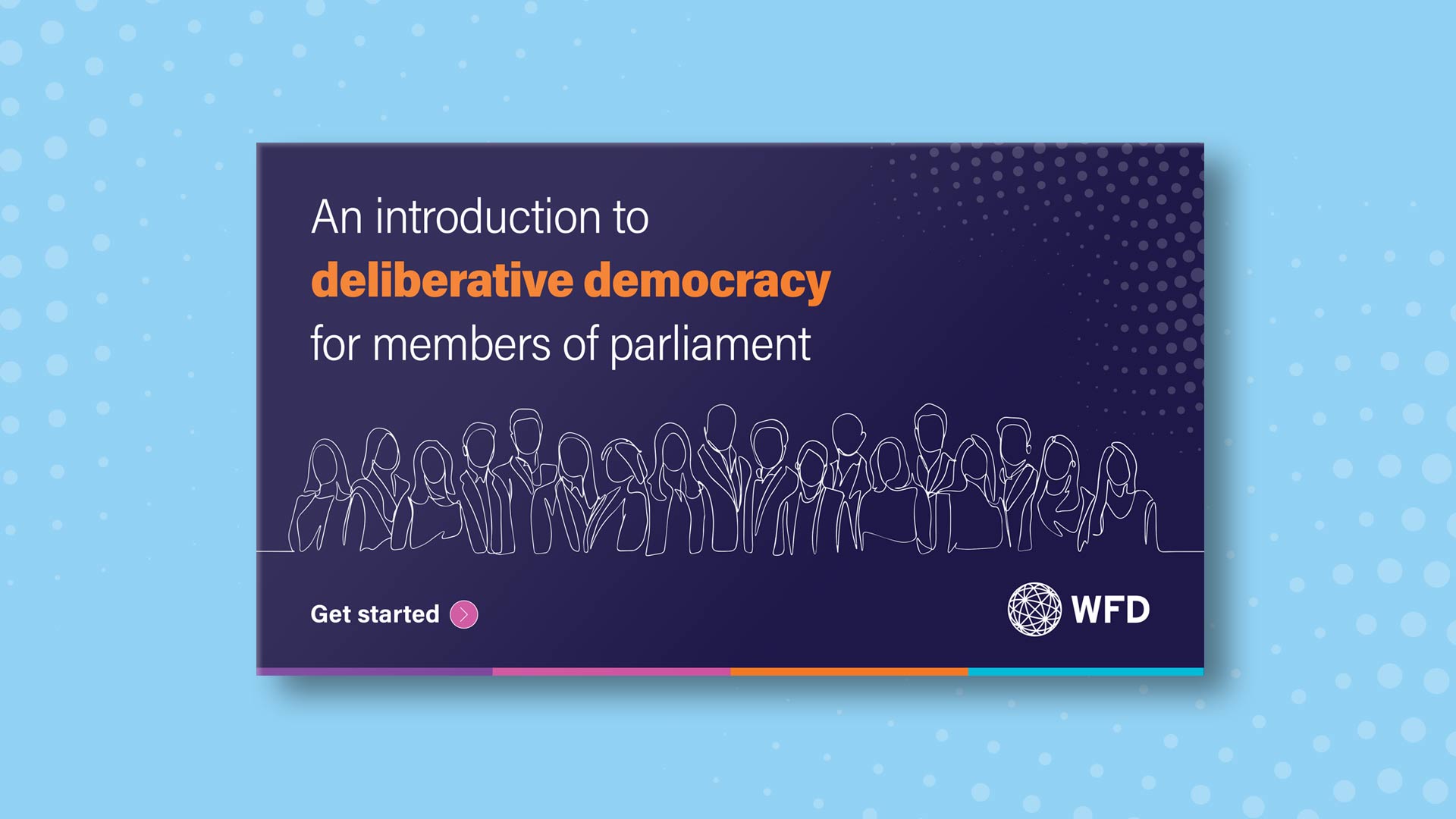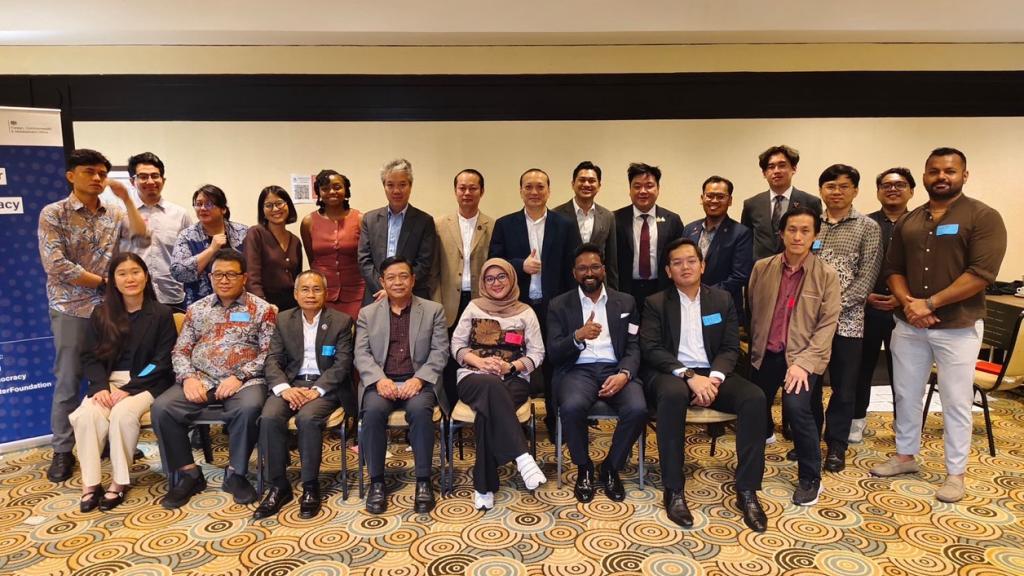This guide from Wesminster Foundation for Democracy (WFD) and the newDemocracy Foundation is designed to support the needs of elected representatives and their advisors—those who would like to strengthen how elected politicians engage with their voters. It is meant for those decision-makers who want to be inspired by new and innovative ways to bring citizens to the heart of the decision.
The guide provides decision-makers with an introduction to concepts of deliberative democracy, good practices and some lessons learned. The first section examines what deliberative democracy is and is not and why parliamentarians and decision-makers at large should consider this innovative process. In the second section, the guide sets out the essential principles that need to be taken into account when embarking on a deliberative democracy process. These eight principles will help to guide decision makers and ensure that corners are not cut, that the methods are robust and trusted.
The third section explores ten case studies from local deliberative democracy processes in Africa, Australia, Europe and Latin America, including examples from climate assemblies and climate or environment-related deliberative processes. These case studies offer practical solutions, including what can go wrong, what has been done elsewhere, and what can be learned from those experiences.
The final section of the guide reviews how deliberative processes can be initiated and supported by parliaments, parliamentary committees and members of parliament, and in particular what issues should be taken into account at every step of the process. It will offer some guidance about the first steps in transitioning toward deliberative democracy. Finally, the guide offers links to many useful resources.






